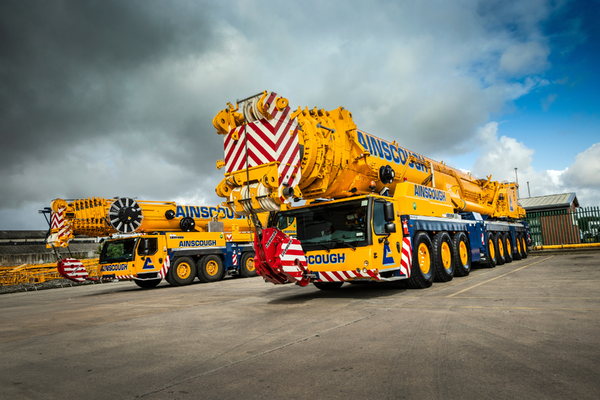Innovative start-ups, government funding and collaboration
How the UK’s sustainable jet fuel economy is taking shape

Although aviation in its totality makes up only about 2 to 3 per cent of transportation’s enormous greenhouse gas emissions, its pollution figure – 285g of CO2 per passenger per kilometre – is the highest among all modes of transport. Considering how common air travel has become, and most probably will remain despite the current difficulties it’s facing, slashing its carbon footprint is key to meeting Net Zero targets globally.
Thankfully, we already have tried and tested strains of sustainable aviation fuel, or SAF, produced with both biological and non-biological resources including cooking and plant oil, agricultural and forestry residues, CO2 and municipal waste. The good thing about SAF is that, being almost identical to jet fuel, it’s compatible with existing aircraft and fuelling infrastructure and therefore can be added to it as “drop in” fuel. Currently, the maximum allowed blending ratio is 50 per cent and there are at least seven different certified pathways to manufacturing SAF, with new ones emerging daily.
One criteria for a new method to certify is that it must be indeed sustainable: its manufacturing must not require any deforestation, land use change, competition with other crops or large amounts of freshwater.
And this needs to hold true for the whole production lifecycle too, from feedstock growth and transport to processing to refining. The EU, for example, has recently banned the use of palm oil by-products for feedstock for SAF for sustainability reasons.
Can the UK become a leading SAF supplier?
The method relying on hydro-processed esters and fatty acids (HEFTA) is at present the most established and straightforward method of SAF manufacturing. Flights powered by aviation fuel deriving from Jathropa, a tropical plant rich in oil, already operated as early as 2013.
But in February 2021 the first airplane running partly on synthetic kerosene produced via a more complex manufacturing process than HEFTA made its landmark first flight.
Although the market is already dominated by big players such as NESTE and Phillips 66, both already supplying British airports with sustainable fuel, thanks to the gigantic volumes required by the sector to reach Net Zero in 2050, there is ample room for upcoming innovators to fledge and thrive.
Having identified this opportunity, the UK government’s Jet Zero Council launched its £15 million Green Fuels, Green Skies (GSGF) competition to support the early-stage development of UK SAF plants. Out of the eight shortlisted companies, four – ABSL, Nova Pangaea, Velocys and Green Fuels – are UK-based.
The feedstocks and technologies they use varies widely. What they have in common, though, is the propensity for innovation and the ownership of proprietary technologies that they both license and deploy in their own plants.
Green Fuels, although established on the market, set up an R&D facility more recently. It has been running joint projects across the globe, from India and Brazil to Oman. What makes Green Fuels stand out is the SAF feedstock – sewage sludge – it will use in its demonstrator plant being built in Berkeley, Gloucestershire.
The company is also exploring opportunities in dairy and brewery waste as SAF feedstock, and is engaged in developing sustainable marine fuel too.
Velocys was created by merging spinouts of Oxford University and the Pacific Northwest National Laboratory (PNNL) in the US.
Its Altato plant, to be built in collaboration with British Airways in Immingham, Lincolnshire, will produce kerosene synthetised from end-of-life plastics, household and office waste, leveraging carbon capture and storage (CCS) and proprietary technology.
Velocys received £2.4 million from the GFGS project and has raised equity capital from BA and Shell.
Teesside-based Nova Pangea, meanwhile, specialises in recycling carbon from wood waste and converting it into sugars, which, in turn, are fermented into bioethanol, using Nova Pangea’s proprietary REFNOVA technology.
The company is pursuing a joint project with BA and Chicago-based LanzaJet called Speedbird, where the technology of the American start-ups and PNNL’s industrial partner is used to convert bioethanol into synthetic kerosene. Once operational, the plant is set to power 2,000 British Airways flights from London to New York on the airline’s Airbus A350 aircraft.
The youngest start-up among the UK GSGF winners, ABSL (Advanced Biofuel Solutions Ltd), will work with a British refinery and a British engineering company on a design for a new facility in Cheshire. The plant will use the company’s proprietary RadGas technology, which combines low-carbon biofuel production from waste with carbon capture to produce crude oil, which then can be upgraded into SAF.
As the examples above show, these innovative SAF production methods demonstrate characteristics of circularity. And by integrating waste – either organic or unrecyclable plastic – into the manufacturing process, as well as carbon capturing, several are carbon negative.
Most of the SAF plants funded by the government’s GFGS project are expected to start production in 2025, five years before the mooted regulation mandating airlines to blend a minimum of 10 per cent SAF into their jet fuel is due to kick in. It will rise further, to an ambitious 75 per cent, by 2050.
The strategic initiative to decrease aviation’s carbon footprint by combining legislation and funding is laudable and, if the demonstration plants prove successful, scalable and replicable, it may become a cornerstone of turning the UK into a market-leading SAF producer in the medium turn.
To read about British businesses excelling at Carbon Capture and Utilisation (CCS), click here
Most Viewed
Winston House, 3rd Floor, Units 306-309, 2-4 Dollis Park, London, N3 1HF
23-29 Hendon Lane, London, N3 1RT
020 8349 4363
© 2025, Lyonsdown Limited. Business Reporter® is a registered trademark of Lyonsdown Ltd. VAT registration number: 830519543






